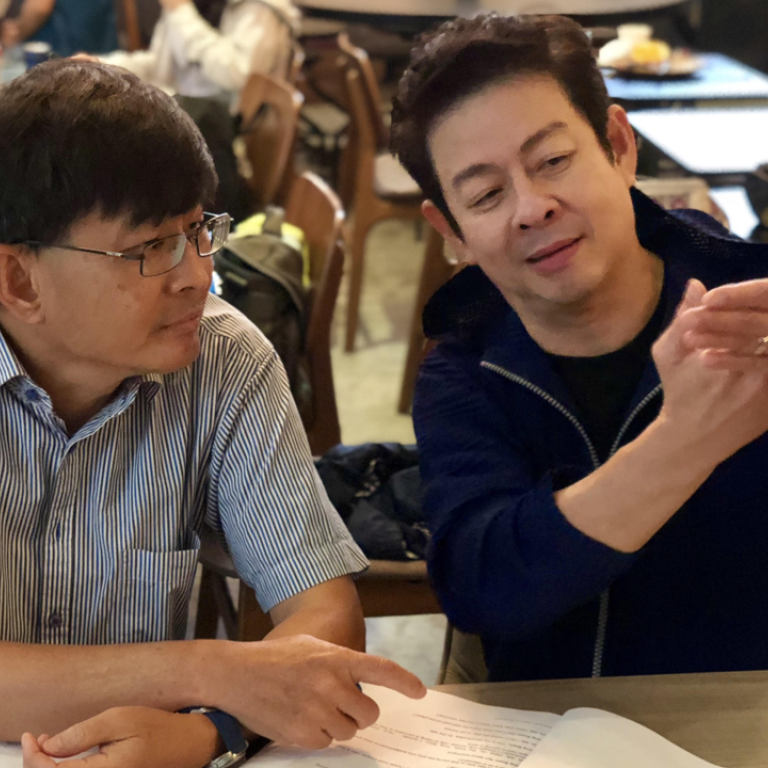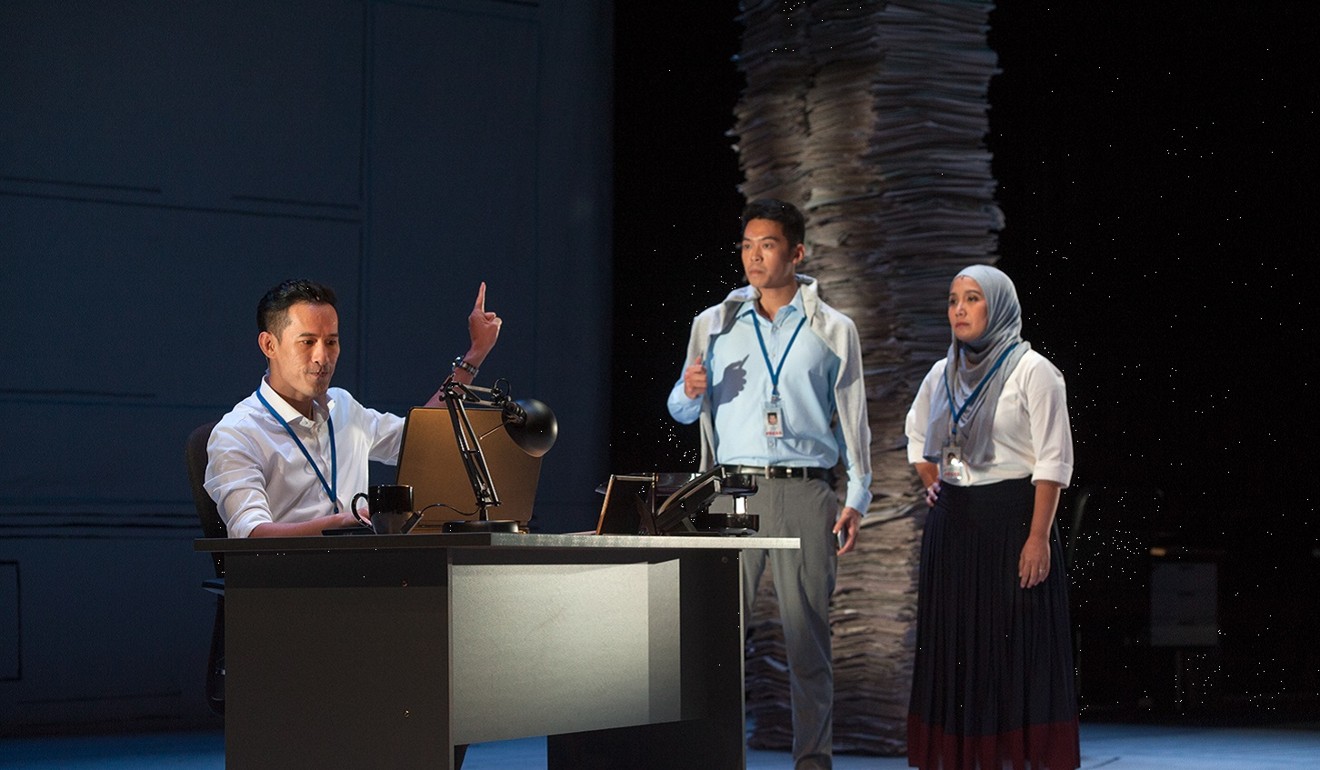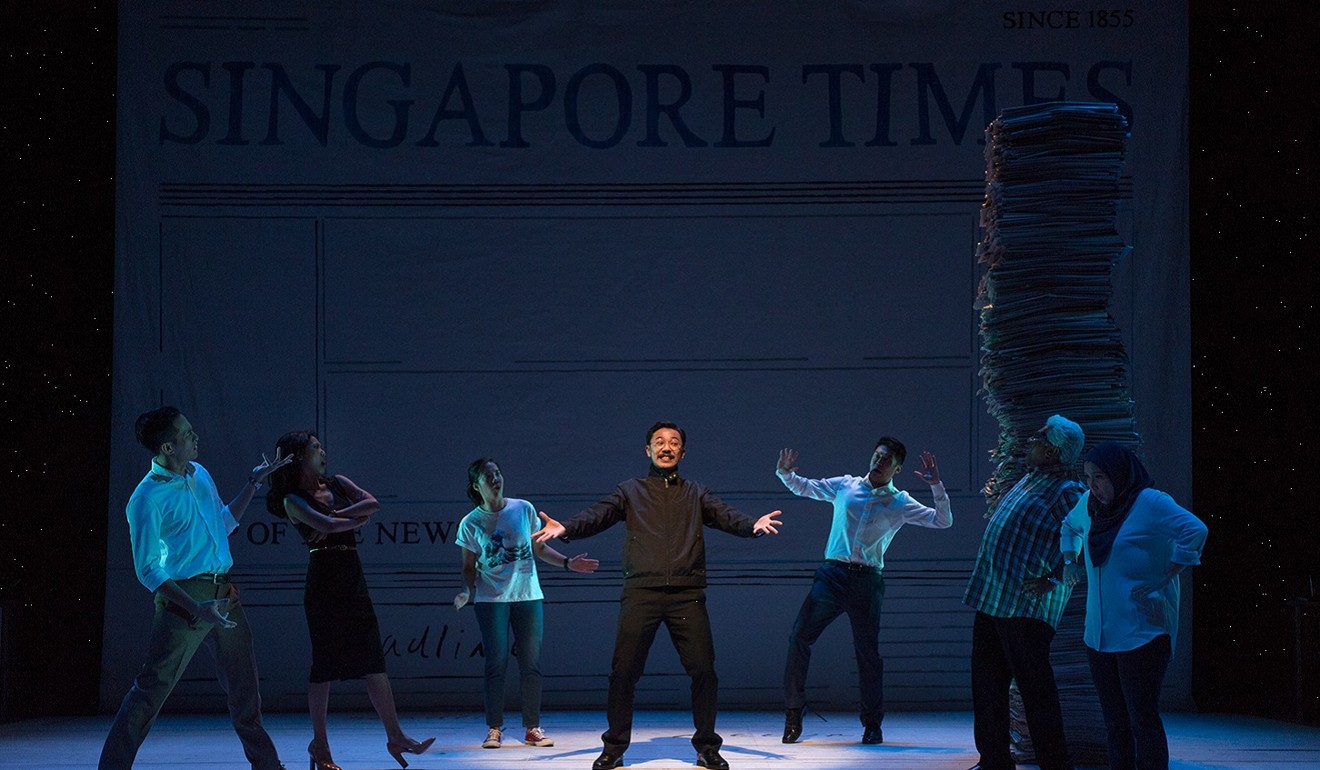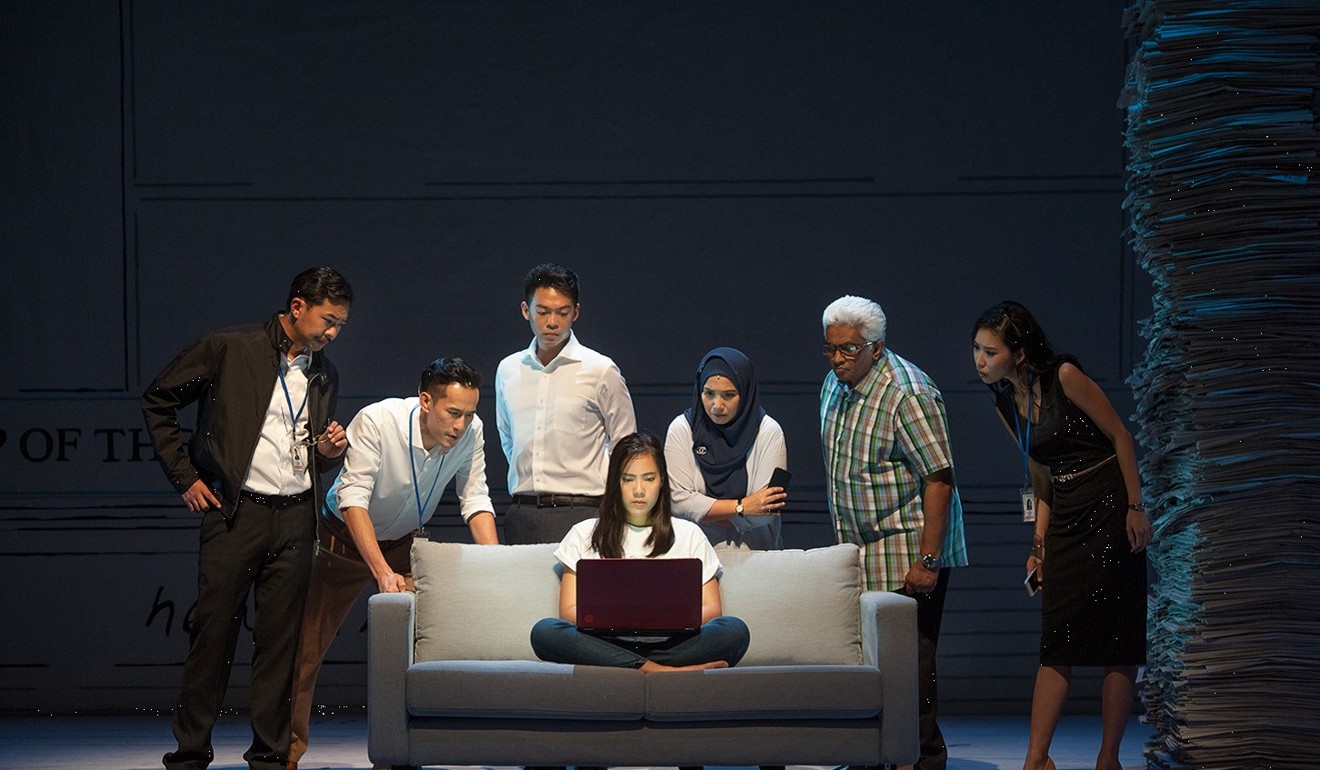
Tan Tarn How’s The Press Gang speaks an unprintable truth about Singapore’s news media
The centrepiece of the Singapore Theatre Festival forces audiences to confront this question: can anyone complain about a government’s lack of transparency when no one is willing to stick their necks out for it?
The centrepiece of this year’s recently concluded Singapore Theatre Festival is a play about the newsroom. It’s entitled The Press Gang, written by an old hand of both theatre and journalism, Tan Tarn How.
Mr Tan is a rigorous intellectual and a fiery dramatist, and Press Gang is his eighth full-length play in a long career that includes a successful Hong Kong production, The First Emperor’s Last Days, staged by the Chung Ying Theatre Company in 1998.
Much has been said in other reviews about how accurately Mr Tan, a former journalist with The Straits Times (ST), chronicles the state’s sophisticated control of Singapore’s mainstream media.
What’s the ‘dirty secret’ of Western academics who self-censor work
But I cannot begin mine without a disclosure: I, too, was a reporter with ST from 2005 to 2007. My stint did not overlap with Mr Tan’s, whose 16 years at the paper included roles as diverse as political reporter, China correspondent and deputy news editor.
Mr Tan draws from this ample experience to create a fictional newspaper called The Singapore Times, whose journalists’ central dilemma is how to report an incident of abuse at the highest echelons of government.
Specifically, how do you report corruption within a sovereign wealth fund when the senior executive at the heart of that corruption is a close relative of the fictive prime minister?
In Hong Kong, the answer would be fairly straightforward: you report it. But not in Singapore, at least according to Press Gang.

The play alternates between arguments in the editors’ offices, meetings with rivals at coffee shops, and negotiations at that grey zone of information barter known as the water cooler. There is a foray into internet cafes and the realm of fake news that all governments and mainstream media organisations struggle against in the Age of Misinformation.
Yet at no point do we ever meet that reliable trope of the newspaper drama: the Leak. This, perhaps, is Mr Tan’s wry observation of Singapore society at large. There is no character on stage to play the brave or expedient whistle-blower, no one who dishes the dirt, no source who gives the reporter his news.
The journalists remain entrenched in the office, keeping their eyes on each other rather than their noses to the ground. There are no scenes of reporters chasing leads, but lots of hand wringing about what to do with intel that cannot be attributed.
What emerges is a portrait of journalism stripped of the ethos of other newsroom dramas – say Spotlight or The Post – where the protagonists’ dedication to the truth is a given and the story is the pursuit of the story.
Instead, Press Gang is a tale of the anti-pursuit. The drama resides in the quagmire of the reporters’ consciences – or lack thereof. And the audience is compelled to ask the question: Can anyone complain about a government’s lack of transparency when no one is willing to stick their necks out for that transparency?

The question applies whether you are a reporter in the mainstream media, a slightly freer operative for an online news site, a public servant or, quite simply, an ordinary citizen.
In Press Gang, two characters do eventually stick their necks out: a senior editor who acts on compunction, and the idealistic writer of a web journal called ‘The Truth and Nothing But’. The former is sacked. The latter lacks the resources to resist the inevitable government backlash, including a defamation suit, after she reports the scandal.
What Chinese, Singaporean universities can teach us about academic freedom
The rest, whose careers flourish within the Singapore Times, are distilled into three types: those who encourage depoliticisation by focusing on consumer puff pieces; those who are blatantly sycophantic towards government leaders; and the passive ex-civil servant who is informed but bereft of opinion – an empty vessel.
This empty vessel is the play’s most intriguing character, for though he is intelligent and appears capable of objectivity, over time his lack of conviction metastasises and he easily succumbs to toeing the party line in order to protect his hefty paycheck.
The empty vessel’s relative youth (he is 30) also raises questions for posterity, both within the newsroom and without. If younger Singaporeans turn away from the mainstream media as readers, viewers and practitioners, then what of the future of journalism and millennials’ engagement in important current affairs?

I put this question to the playwright Tan, and director Ivan Heng, whose company Wild Rice premiered Press Gang and seven other new plays at the Singapore Theatre Festival.
“We had some young people asking, ‘What can we do?’,” said Tan, referring to a post-show forum where younger audiences voiced a desire for greater press freedom in Singapore. “That question suggests that a few of the millennial generation still believe they have some agency to change things.”
But the aspirations of the young must be matched by a system’s willingness to adapt, Heng argued. “Either you change with the times or you grow obsolete. Then you get what is depicted at the end of the play: a graveyard of cardboard boxes signifying hundreds of journalists who have lost their place and faith in the national news media.”
Personally, I am circumspect about the mainstream media’s capacity to adapt and its top editors’ recent assertions that it “does us no justice to be pro-government”. Censorship and self-censorship remain a daily reality for all Singaporeans and no one is under any illusions about the media’s subordinate relationship to the state.
In this regard, fiction would appear to trump ‘fact’, as Press Gang is ultimately more honest about the national news media, than the national news media is about itself.

